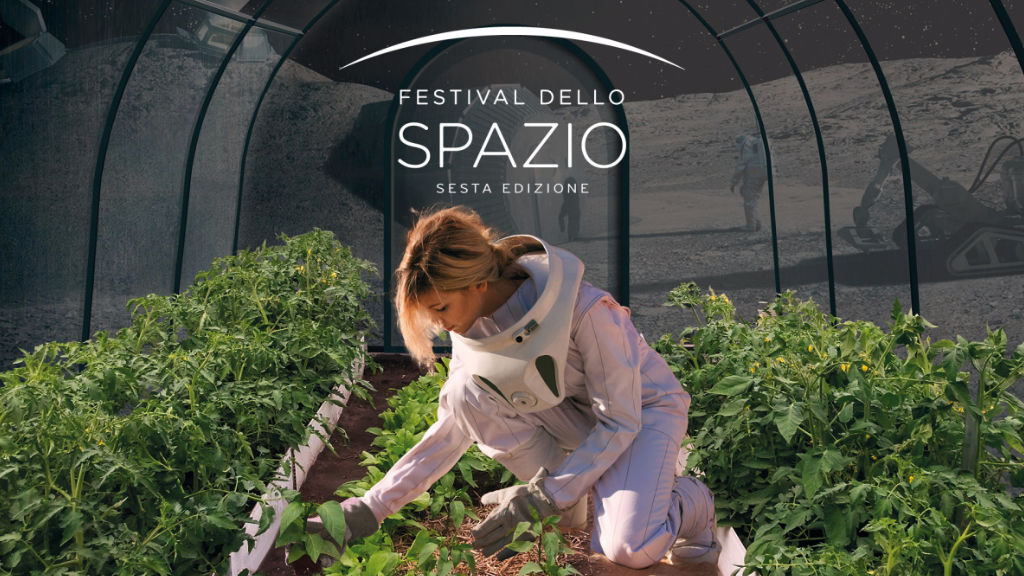
THE TENTH ANNIVERSARY OF THE CTNA AT THE BUSALLA SPACE FESTIVAL
We talk about Space Economy at the Busalla Space Festival, on the occasion of the tenth anniversary of the CTNA.
A panel of guests representing large companies such as Leonardo and Thales Alenia Space, SMEs and other stakeholders from the world of research to discuss space from a regional to a European dimension, major challenges and ways to address them.
Innovation is the basis of the growth of the sector and the indication of the basic concepts to best position oneself in this race is invaluable.
To be competitive, companies must be agile in thinking and rapid in execution, able to generate ideas and create new products, operating according to the fundamental principle of transversality, because this is a necessary measure to avoid losing precious opportunities, guarantee fast growth and a quality production.
Often, however, to create complex systems, companies are used to operating in sections and, in this way, innovating is difficult.
Innovation cluster is the key word that summarizes the cultural change necessary to facilitate research and encourage development. As? By doing open innovation and business innovation, expanding the network by involving different interlocutors, organizing scouting and mentoring activities, underlines Cesare Lobascio (Thales Alenia Space).
A breath of optimism characterizes the speeches of all the representatives of the large companies specialized in the sector but also of the representatives of the young start-ups, who start from scratch to invent new solutions and take on challenges.
Also present are groups such as RINA, which works to enhance technological skills in the aerospace sector by offering strategic consultancy and carrying out research projects such as Microlith, illustrated on this occasion, whose objective is to identify on terrestrial soil materials similar in chemical composition to lunar regolith and to understand , through simulation activities and subsequent procedures, such as creating lunar “bricks” to create in situ housing units in the near future.
Nanoracks is also on the same line, which operates paying particular attention to the needs of its customers and brings digital access to more complex resources into orbit, practicing a business that we could define as “participatory”, whose purpose is always the same: to facilitate access to space and encourage innovation to achieve widespread benefits.
We now know that many realities, even apparently distant ones, have an interest in space. The reason is to be found in the profitable relationship of reciprocity with our planet. This is the case of Enel, which acquires important information with satellite data and at the same time works to guarantee clean energy with the hope that what is discovered and applied at an energy level for space can contribute to the sustainability of the Earth.
Great excitement among the companies present at the Busalla panel; each according to its own specialization (design of nano satellites, creation of components, improvement of technologies…) experiments by creating an aggregating ecosystem for a dynamic market. Speaking of dynamism among Leonardo’s activities, initiatives and changes, the young talents of the Leonardo Labs network were also mentioned on this occasion by Marco Cesena; precious and recent resource.
From the various speeches it emerges that the fundamental aspects for the acceleration of the space sector are not only the technical ones but also the economic ones: investments. And precisely when talking about private investments we learn that growth is impetuous; this was revealed by Matteo Cascinari, partner of Primo Space. The immediate reflection follows that the push is prodigious and undoubtedly represents a guarantee of healthy competitiveness not only through the prepared agencies, but also thanks to access to institutional funds and investments.
In this context, the role of CTNA as an aggregator, its mission dedicated to innovation, the roadmap, the working groups and the network at its disposal (university institutions, research centres…) is fundamental and Remo Pertica, president of the Ligurian District , traces its history from its origins to today to celebrate its tenth anniversary, underlining its growth through the ongoing inclusion of many associates.
For the CTNA this was a birthday with many guests and important food for thought.
Video of the event